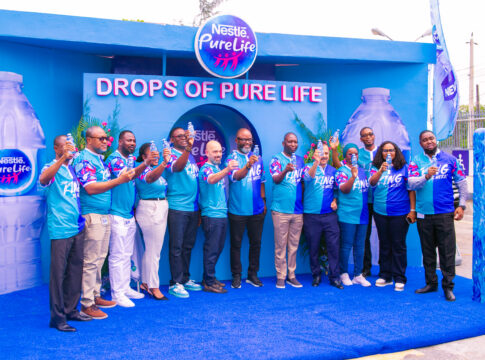By Jim Rex-Lawson Moses
As concerns regarding environmental sustainability continue to mount up, concerned and environmentally responsible organisations have continued to evolve new and effective strategies to impact the environment positively.
Meaning of Environmental sustainability
Environmental sustainability is the practice of managing natural resources to meet present needs without compromising the ability of future generations to meet their own needs. It involves protecting ecosystems, conserving biodiversity, reducing pollution, and promoting resource efficiency to ensure a healthy planet for the future. Key components include reducing waste, promoting renewable energy, and ensuring that consumption does not irreparably harm the environment.
Core principles and goals
- Meeting present needs: Environmental sustainability is about ensuring that current human activities are balanced with the needs of the future, as defined by the Brundtland Commission.
- Resource management: This involves both limiting the use of natural resources and protecting them from degradation to ensure they remain available for future use.
- Ecological balance: It aims to maintain a healthy equilibrium between human culture and the natural world, preventing unnecessary depletion of resources.
- Holistic approach: Sustainability considers the interconnectedness of environmental issues like waste, pollution, and climate change, rather than focusing on a single aspect.
Key practices and examples
- Reducing carbon emissions: Investing in renewable energy and adopting policies that lower greenhouse gas emissions is a significant part of environmental sustainability.
- Waste reduction and recycling: Minimizing waste through the “reduce, reuse, recycle” model is crucial for conserving resources.
- Resource efficiency: Using resources, such as timber or water, in smart ways to minimize waste and maximize utility is a key principle.
- Protecting biodiversity: Conserving the variety of life on Earth is essential for maintaining healthy ecosystems.
- Sustainable consumption: Shifting consumption patterns to be more mindful, which can include consuming “better” rather than just consuming less, is an important goal.
The Nestlé Strategy
The foregoing seems to have necessitated Nestle’s approach as an environmentally responsible company to adopt new strategies towards advancing environmental sustainability.
Nestlé Nigeria has introduced new clear caps across its Pure Life bottled water range to boost recyclability. The clear caps, first introduced with the launch of the 33cl Nestlé Pure Life bottles, now feature on all bottle sizes, excluding Nestlé Pure Life Protect.
By eliminating the traditional blue color pigmentation, the clear cap makes it easier for recyclers to identify, sort, and repurpose the material, helping to reduce plastic waste and promote a circular economy thereby reinforcing Nestlé Nigeria’s long-term commitment to more sustainable packaging solutions.

Speaking on the brand’s decision to introduce the clear cap, Olutayo Olatunji, Business Executive Officer, Nestlé Waters, said,
“At Nestlé Pure Life, caring for our consumers and for the planet in every possible way has always been at the heart of what we do. We remain passionate about delivering safe, quality water, we’re equally committed to protecting our planet. The clear cap isn’t just a design update; it is a reflection of our deeper commitment to sustainability. From being the first and the only water brand to introduce 50% rPET in our bottles, which cuts virgin plastic use by half, to now eliminating colored bottle caps , every step we take is intentional, aimed at creating a 360-hydration experience that prioritizes both people and the planet.”
As conversations around plastic pollution and environmental responsibility continue to grow, packaging innovation has become a powerful driver of positive change for forward-thinking companies. Victoria Uwadoka, Corporate Communications, Public Affairs and Sustainability Lead, Nestlé Nigeria, emphasized the company’s commitment to this shift.
“At Nestlé, sustainability is not a buzzword; it is a responsibility. Introducing the clear cap represents a meaningful shift in how we design with purpose. Across our brand categories, we are thinking beyond function to impact, creating packaging that works for consumers, supports our recycling partners, and protects the planet.”
This development contributes to Nestlé’s global ambition to make 100 percent of its packaging recyclable or reusable by 2025. Locally, it reflects the company’s ongoing efforts to enable a more sustainable hydration experience in Nigeria, one that meets evolving consumer needs while preserving natural resources for future generations. Therefore, adopting this model has become imperative for much desired results if environmental sustainability must be advanced beyond rhetorics.




